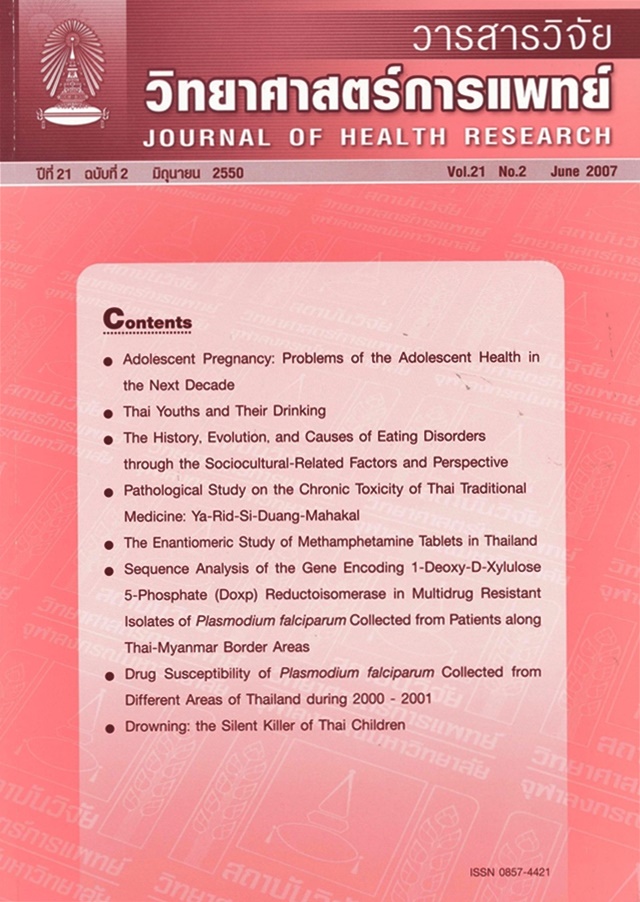Pathological Study on the Chronic Toxicity of Thai Traditional Medicine: Ya-Rid-Si-Duang-Mahakal
Keywords:
pathological study, chronic toxicity, Thai traditional medicine, Ya-rid-si-duang-mahakalAbstract
The pathological study on chronic toxicity of Thai traditional medicine: Ya-rid-si-duang-mahakal was investigated in 180 wistar rats. The rats were divided into 6 groups, 30 rats in each group (male = 15 and female = 15). Group 1 was a control group, treated orally with distilled water. Group 2-5 were treated orally with 10, 100, 500 and 1000 mg/day/kg body weight for 6 months continuously. Group 6 (Recovery group), they were treated orally with 1000 mg/day/kg body weight for 6 months as treatment group. After that, they were then stopped administration 2 weeks before euthanasia. The histopathological results of the treatment groups showed significant lesions in kidneys and liver when compared to control (p<0.05). The kidneys showed various tubular casts with mild to moderate degree tubulonephrosis and moderate degree focal nephritis as well. Liver showed mild to moderate degree fatty degeneration with moderate degree focal hepatic necrosis. There were some reconizable lesions in other organs, such as, submucosal edema of stomach, laryngeal epithelial hyperplasia when the rats were given in high-dose groups. In conclusion, the chronic toxicity in 6 months administration of Ya-rid-si-duang-mahakal did not demonstrate any pathological changes in the visceral organs of the experimental rats. However, the kidney and liver function test should be monitored in the long term administration.







